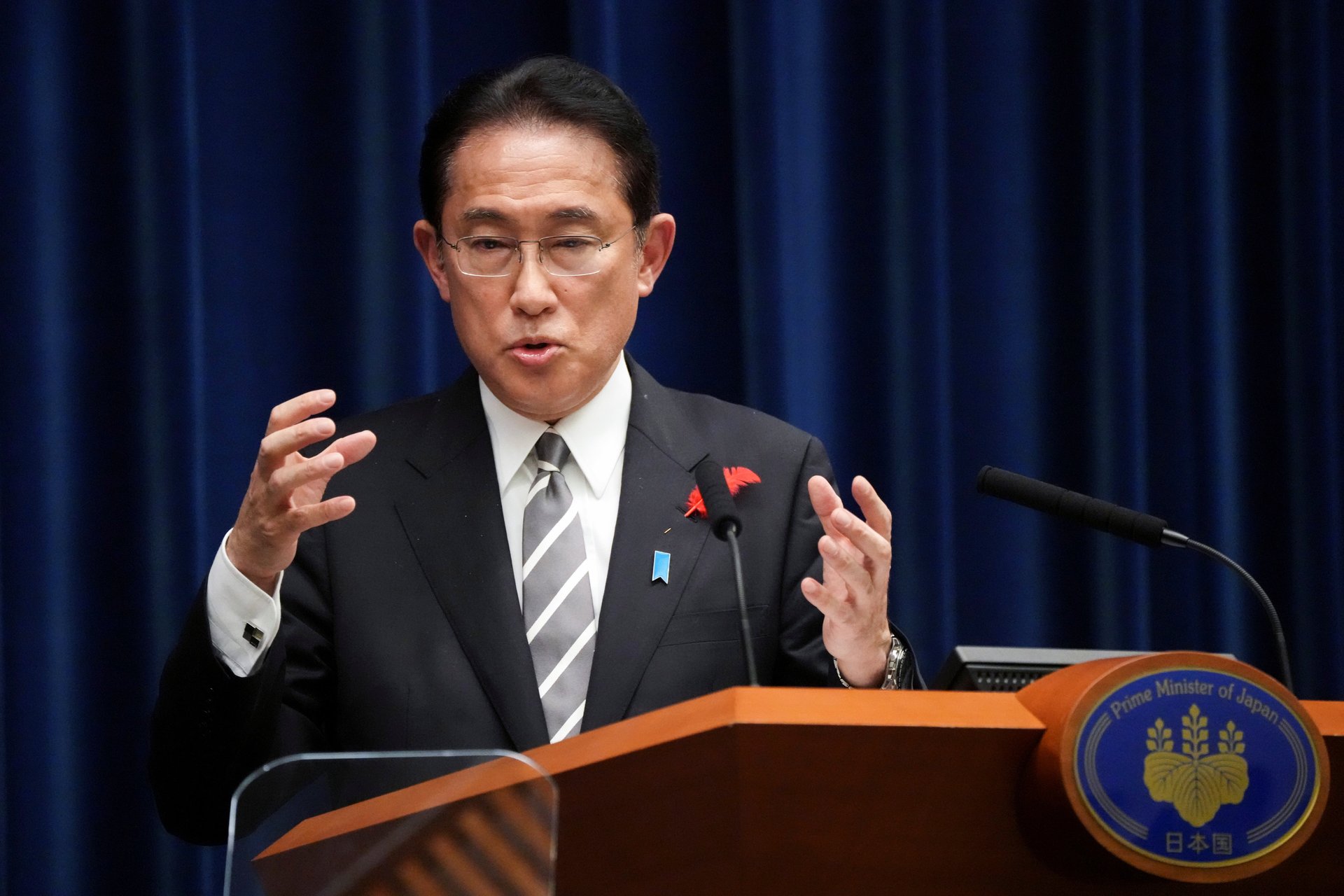Japan is changing its approach to Africa
At the TICAD summit in Tunis, Japan will be trying to catch up with China, US and EU in investing in Africa

With the eighth edition of the Tokyo International Conference on African Development (TICAD) kicking off in Tunis, Tunisia on Aug. 27, Japan is looking to change its Africa policy from one focusing on aid to foreign direct investment (FDI)—a move it considers more pragmatic.
In the absence of prime minister Fumio Kishida who tested positive for covid-19 on Aug. 21, foreign minister Hayashi Yoshimasa is leading the Japanese delegation to north Africa, where about 30 heads of state and 5,000 delegates are expected to attend.
The summit will be taking place at a time when the African Continental Free Trade Area (AfCFTA) has chosen eight countries to start implementing the idea of a shared market without trade barriers, an opportunity for Japan to be the first foreign power to access the continent as a single free market.
This, Japan hopes, will help it catch up with China, the EU, and the US who have been active in the continent in the recent past, deepening business relations. The US-Africa Business Summit in Morocco in July attracted 450 US companies, 17 government agencies, and 213 business deals were signed. FDI from the US to Africa stood at $44.8 billion in 2021.
FDI as the model for engagement with Africa
While there have been concerns over the reduction of China’s financial commitments in Africa from $60 billion in 2018 to $40 billion in 2021, China’s move this past week of waiving debt from 17 African countries weighs favorably for the Asian giant.
There is growing interest to invest in Africa, with FDI to African countries doubling last year to hit a record $83 billion, though investment flows to the continent accounted for only 5.2% of global FDI, up from 4.1% in 2020. Last February, however, the EU committed to invest $170 billion in Africa, positioning itself as the most valuable business partner for the continent.
Tokyo could also take advantage of its 2019 Partnership on Sustainable Connectivity and Quality Infrastructure with the EU, with trilateral business initiatives being actively discussed as cooperative schemes through which to facilitate joint Japan–EU–African private investment.
What does Africa want from Japan?
In March, African ministers and their Japanese counterparts held a ministerial meeting which identified some of the key development challenges facing the continent ahead of the TICAD summit, and the discourse centered on helping Africa recover from the economic ravages of the covid-19 pandemic, curbing food shortages caused by the war in Ukraine and supporting the continent’s $100 billion infrastructure financing sustainability agenda, which remains a tricky endeavor.
Japan, a member of the G7, has been rooting for a rules-based order (the rules that protect sovereignty, preserve peace and curb excessive use of power, and enable international trade and investment), making the war in Ukraine a critical incentive for Tokyo to step up its cooperation with Africa, which holds a significant number of UN votes. That could see discussions in Tunis target to persuade Africa to condemn the use of illegal force, but African nations remain divided over denouncing Russia’s invasion of Ukraine.
But critics have highlighted that Japan’s investment strategies in Africa have yielded little benefits since the first edition of TICAD in 1993, with the balance of Japan’s FDI in Africa, which stood at $12 billion at the end of 2013, declining to about $4.8 billion at the end of 2020, compared to $65 billion from the UK, $60 billion from France, $48 billion from the US, and $43 billion from China in the same period. The number of Japanese companies operating in Africa slowly increased from 520 in 2010 to 796 in 2019 but total investment has fallen in recent years.
This year’s summit is a chance for Japan to prove critics wrong, and give its private sector renewed impetus to invest in Africa and lend to the continent as economic engagement by its great geopolitical rival China drops off. Japan’s influence in the G7’s Build Back Better World (B3W) could help also unlock more funds for Africa.